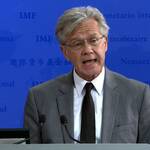The National Seed Trade Association of Ghana (NASTAG) has called on the government, as a matter of urgency, to settle debts owed to its members for the supply of seeds under the flagship Planting for Food and Jobs (PFJ) initiative.
According to NASTAG, the government owes its members GH₵207million for seed supplied for the 2021 cropping season.
Mr Kwabena Adu-Gyamfi, the President of NASTAG, in a statement expressed frustration over the government’s failure to settle the debt to its members 14 months after the seeds were supplied.
The statement warned that the government’s efforts to revamp Ghana’s agricultural sector and address the recent deepening economic challenges associated with food price volatility, inflation, unstable currency and growing household food insecurity, would suffer a major setback if the agriculture sector was not prioritised.
It said despite the debt owed its members; Seed suppliers had shown good faith as they continue to supply certified seeds to farmers for the 2022 cropping season.
“This gesture should be reciprocated by the government by the payment of the outstanding debt of seed supplied in 2021,” it urged.
The statement also noted that with inputs for production such as fertilizer and agro-chemicals, currently imported, with escalating prices daily, production for smallholder seed farmers would only be difficult, adding that, the value of GH₵207million seeds supplied in 2021 had been eroded by over 70 per cent on account of inflation over the last year.
It warned that the food security situation might get worse as most of these out growers were likely to abandon their fields.
Over 40,000 smallholder farmers are directly or indirectly affected by the undue delayed payment and stand a high chance of affecting over 700,000 other smallholder farmers who depend on the local seed producers for seed and sponsorship to produce their grains.
The Statement warned that the current increasing food prices could get worse in the coming months and next year if something imminent was not done about the payment of the debt owed NASTAG members.
“The northern sector is at the peak of its season while the southern sector is entering the minor rainfall season. With immediate payments, farmers could still produce enough of various seeds for the 2023 planting season and reduce the food prices in the country,” the statement said.
“As indicated, many seed producers are smallholder farmers, who produce seeds and at the same time, invest in out-growers. As their investments are locked up with the government, all their fields and that of their out-grower farmers are currently under stress with no money to purchase the requisite inputs, fertilizer, agro-chemicals, etc. This would have a direct effect on the availability of seeds for production in 2023,” it added.
- Inflation Rate falls marginally to 21.2%in April - 8 May 2025
- Kidnapped victims: Efforts underway to bring them home – CID boss - 8 May 2025
- Thursday, May 8, 2025 Newspaper Headlines - 8 May 2025




